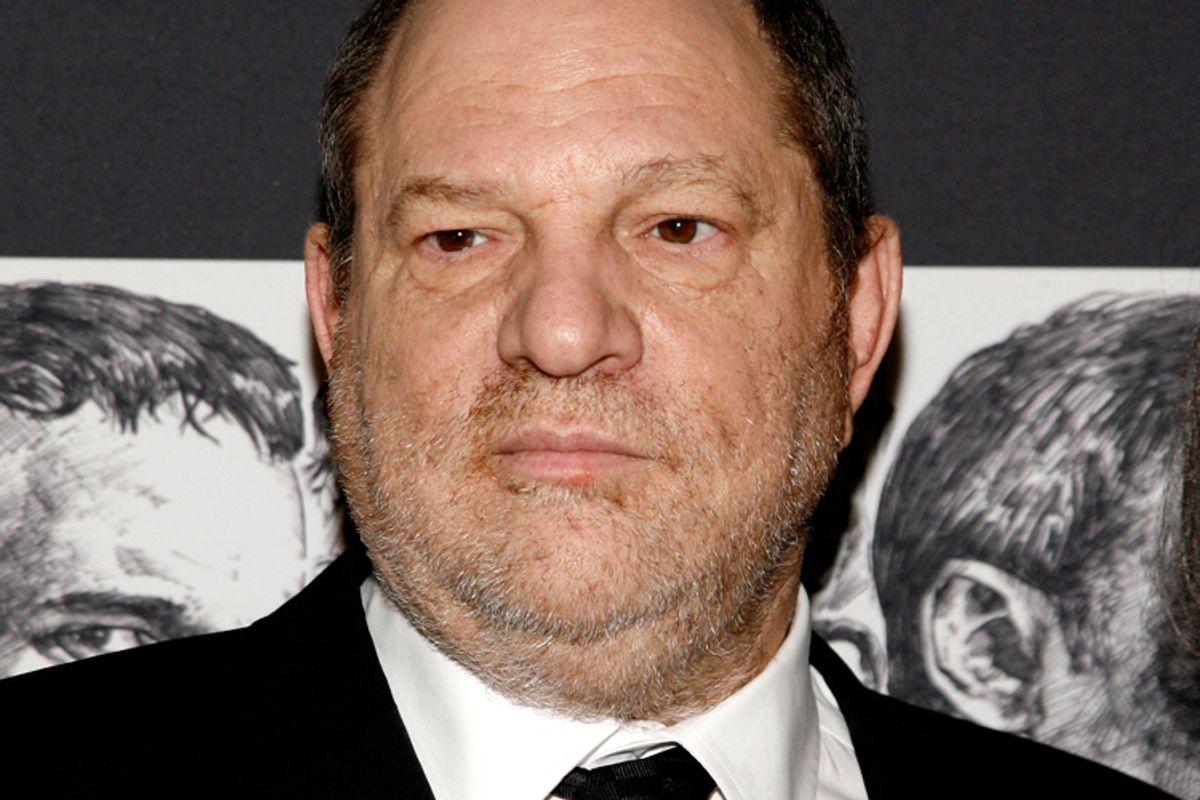As Hollywood mogul and accused rapist Harvey Weinstein heads to an undisclosed rehab center for his "sex addiction," the future of his company is up in doubt.
The Weinstein company's remaining leadership is mulling whether or not to reorganize in the face of a possible bankruptcy, according to Variety. Some members want the company to be sold. Notwithstanding the massive liabilities faced by the company in the event of possible lawsuits, board members are also rightly concerned that the sheen of The Weinstein Company has been diminished:
Industry sources said given the fact that the Weinstein Co.’s ability to move forward with new projects has significantly diminished in the past week, since sexual harassment allegations against Harvey were detailed by the New York Times and the New Yorker, the banks behind the $400 million senior credit facility that TWC lined up last year are surely getting antsy. Those lenders include Union Bank and Irvine-based Opus Bank. Sources said it would not be a surprise for the senior lenders to ask for a trustee to be appointed to begin the reorganization process.
A banker told Variety that the company was "in complete turmoil." And part of that is due to the fact that there may be no way to get rid of him. Though Weinstein was fired after the allegations came out, TMZ reported Thursday that the company's action may not have been in line with his contract:
[Weinstein's] contract [with the company] says before he can be fired he has a right to mediation and if that doesn't work, he's entitled to arbitration. He got neither. He was summarily fired, and sources connected with Weinstein tell TMZ he was never given a specific reason.
A source connected with TWC tells TMZ, the company had a right to fire Weinstein if he didn't notify the Board of Directors of settlements. We're told there have been no settlements since the contract was signed, so it would seem this clause does not apply.
To make matters worse, Weinstein's contract does not have an out clause in the case of sexual impropriety lawsuits, provided he paid the company's settlement costs.



Shares